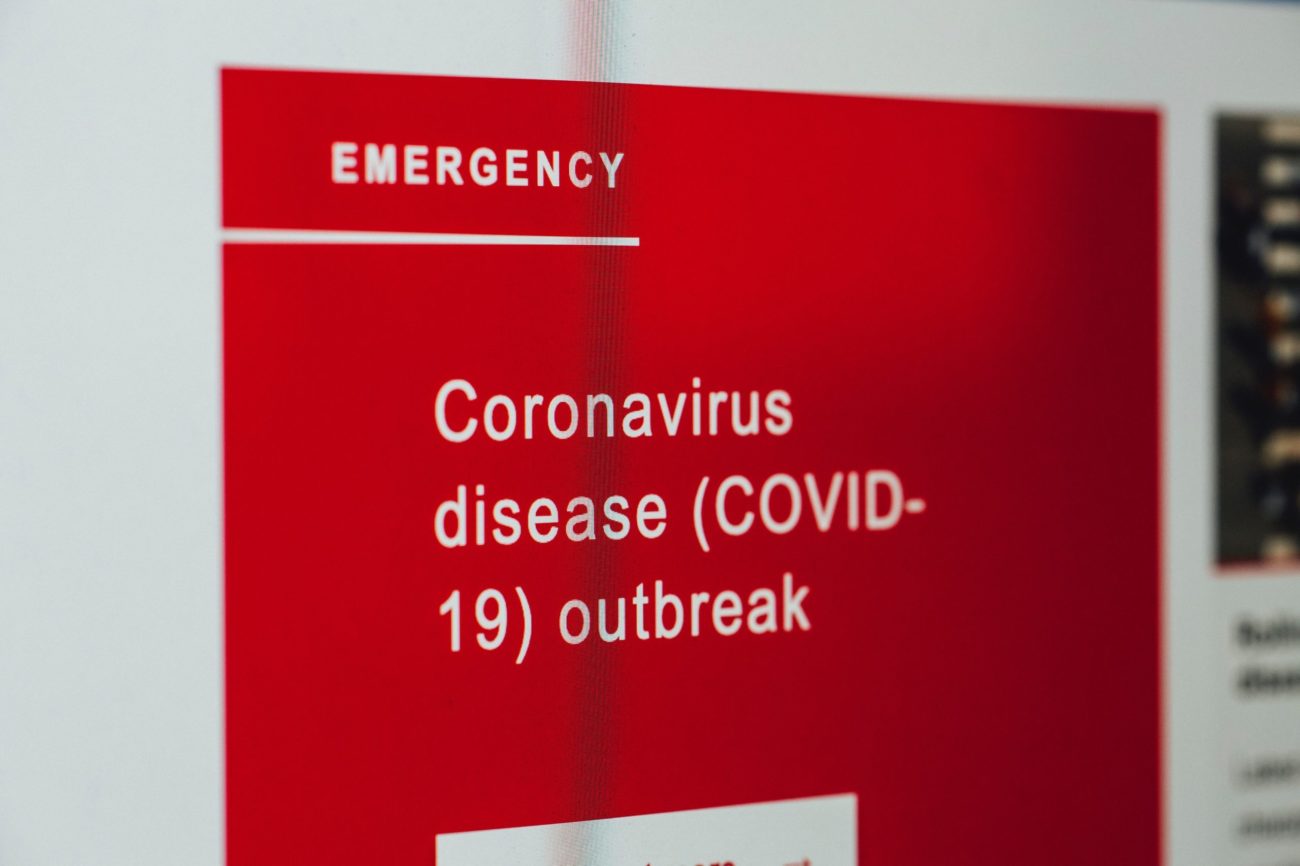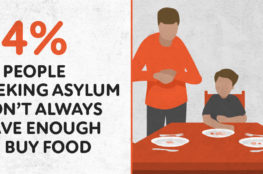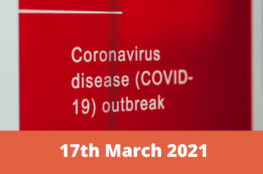Our fortnightly summary of ongoing advocacy initiatives, interesting surveys and research, government developments and useful resources. Contact us if you’d like to get this update directly into your inbox!
-
Ongoing advocacy
Home Office announces sweeping, divisive reforms of the UK’s asylum system
Last Wednesday, the UK Government announced new plans to ‘overhaul’ the asylum system. These drastic policy proposals have been trailed for many months, and have finally been published as part of the Home Office’s ‘New Plan for Immigration’ and announced in Parliament.
We are appalled by these inhumane and unworkable proposals, which threaten to slam the door in the face of people in dire need of protection from persecution. Despite the rhetoric, these divisive plans will do nothing to address the root causes of why people put their lives at risk trying to cross the Channel or the record backlog of people waiting in inhumane conditions for a decision on their claim for asylum. Instead, they threaten the very right to claim asylum in the UK and the safety of people on the move.
What’s in the ‘New Plan for Immigration’?
There are a few helpful articles now available online which try to summarise the content of the proposals, including on Free Movement, JCWI’s explainer and Refugee Action’s statement.
Whilst there is not much in the way of policy detail within the plans, the main headlines include (but are not limited to):
- Creating a two-tier system where refugees are granted different rights and status entirely due to how they have entered the UK;
- People who have entered the UK irregularly will be considered ‘inadmissible’ to the UK’s asylum system, and the Home Office will make all attempts to return them to another ‘safe’ third country (although this is ‘contingent on securing returns agreements’ with these countries). Only if the Home Office is unable to return someone to another ‘safe’ third country, will people who have entered irregularly be allowed to access the UK’s asylum system;
- Those who have arrived irregularly and are then recognised as refugees will be granted ‘temporary protection status.’ Those with ‘temporary protection status’ will have no recourse to public funds and limited family reunion rights. Leave will last no longer than 30 months, after which they will be regularly reassessed for removal;
- However, refugees who are resettled to the UK through government resettlement schemes will have enhanced levels of protection, including receiving indefinite leave to remain on arrival and enhanced family reunion rights;
- Replacing the current asylum accommodation model with reception centres to provide basic accommodation for people while their asylum claim is processed. The proposals also intend to facilitate the use of offshore processing facilities in the future if deemed necessary by the Government;
- Implement the provisions in the Immigration Act 2016, including removing Section 95 support from families who had been refused asylum, replacing Section 4 with a more limited form of support and restricting access to social services support for families;
- For more information on the proposals around family reunion, please refer to this statement from the Families Together coalition.
Over the last week, there has also been great coverage in local and national media challenging the proposals, particularly from refugees who have sought sanctuary in the UK. Hassan Akkad, a refugee from Syria, has criticised the proposals in the Independent, Osman in Leeds expressed his disappointment at the harmful new policies on BBC Radio Leeds (3.15 into the show), and Natasha Walter challenges the Home Secretary to listen to women seeking asylum.
UKLGIG have been working with PIRC, NEON and other organisations who support LGBTQI+ people seeking asylum, and produced a messaging guide on communicating issues around LGBTQI+ asylum. The guide covers some of the issues that the New Plan for Immigration and Sovereign Borders Bill have brought up, and makes broader recommendations on terminology and responding to attacks.
What can you do about it?
Right now, we’re at a critical juncture. These proposals threaten the rights of people seeking asylum, and are the biggest overhaul of asylum policy in the UK since 1999. It’s more important than ever that the voices of people seeking asylum, the organisations that work alongside them, and the communities that have welcomed new arrivals are heard loud and clear.
The Government has now announced a six week consultation on these proposals, through an online platform where organisations and individuals can submit their input up until 6th May. You can also see the questions in advance here.
Over the next week, we’ll be pulling together guidance for organisations and individuals who want to respond to the consultation and change the narrative. We’re also looking into options for a webinar the following week, for partners to hear more about what’s in the New Plan for Immigration and how they can respond strategically to the consultation.
We’ll share more information on this as soon as possible. Please get in touch and let us know if there’s anything that would be particularly helpful to include.
#CloseTheBarracks Day of Action
Thanks to everyone who got involved in the Day of Action on Friday 19th March, where we collectively called for urgent improvements to the way people seeking asylum are housed in the UK.
As part of the day of action, hundreds of MPs have been contacted by their constituents; roughly 30 MPs have met, or are due to meet with, their constituents; and more than 600 people joined the online rally with brilliant refugee speakers with experience of the barracks accommodation and other institutional accommodation, and Holly Lynch MP, Stuart McDonald MP, and Caroline Nokes MP. Even more people got involved on social media, either tweeting their MP, or posting messages of support to #CloseTheBarracks.
There’s been loads of brilliant media coverage including this incredible interview with one of the former residents of the barracks in the Daily Mail, and our friends at Restore speaking to UCB radio. A former resident of the barracks also wrote this powerful letter to the Guardian.
Now, more than ever, we’ll continue to keep up the pressure and call for people seeking asylum to be housed in local communities, and are properly supported to rebuild their lives in the UK.
Please get in touch with your Regional Campaigns Manager if you got in touch with your MP and are waiting for a response, or even already had the meeting. We’d love to hear from you!
Lift The Ban
The team at the Maryhill Integration Network in Glasgow, together with several other Scotland based partners, organised a fantastic online event for the Lift The Ban campaign on 16 March.
The event was attended by several experts by experience and parliamentarians; and saw the launch of a new campaign animation.
They also secured coverage in The National both before and following the event.
London Mayoral Election action
The Refugee Council is calling on people to help #EndRefugeeHomelessness in London, by calling on the city’s next mayor to take action to address the fact that almost all new refugees in London face becoming homeless immediately after they get refugee status. You can take action here.
#LoveESOL open letter to London Mayor
As part of its #LoveESOL campaign, English for Action has launched an open letter to London Mayor Sadiq Khan, seeking a commitment to improvements to ESOL provision in London.
Partners are encouraged to sign and share the letter (which is also available in languages other than English) and spread the word on Facebook and Twitter.
Scottish Refugee Council calls on Holyrood candidates to take the Welcome Pledge
To mark the first Scottish Parliamentary elections where people with refugee status in Scotland are able to cast their votes, the Scottish Refugee Council is asking all prospective Scottish Parliamentary candidates and party leaders to make a pledge to use their parliamentary term to make Scotland a welcoming and supportive place for people seeking safety here. You can read more about the campaign here.
-
Research and reports
GMIAU Report – ‘Wasted Childhoods: the impact of Covid-19 delays on children in the North West of England’
GMIAU has published a report outlining the impact of Covid-19 asylum delays on children they were working with in the North West of England. They found that significant numbers of children have been emotionally and physically affected as a result of the delays in asylum decisions. You can find a report on it here in the Guardian.
-
Home Office and Government developments
New Independent Chief Inspector of Borders and Immigration appointed
The Home Secretary has announced the appointment of David Neal as the new Independent Chief Inspector of Borders and Immigration. This follows David Bolt stepping down from the role on 21 March.
Equalities Connect and Exchange Hub and webinar
The UK Government is launching a Covid-19 Vaccine Equalities Connect and Exchange Hub, due to go live on Thursday 1 April. It will be run by the Department of Health and Social Care (DHSC), which says the Hub will be a place for people to connect and exchange ideas for increasing the uptake of the Covid-19 vaccine for all communities. It is aimed at anyone working nationally, regionally or locally on improving vaccine uptake.
You can request access in advance of the launch by registering for an account and once registered requesting to join the Hub.
There will be a webinar on Thursday 1 April between 2-3pm to support the launch. DHSC says it will provide an introduction to the Hub, what it is for and how it can help you maximise vaccine uptake; and will include some ideas and examples that may be of particular use during Ramadan. You can register for the webinar here.
New Scots funding
The Scottish Government has announced £2.8 million in grant funding for organisations supporting refugee integration in Scotland.
This funding is part of the New Scots refugee integration strategy which aims to ensure refugees live in safe and welcoming communities that enable them to rebuild their lives from the day they arrive in Scotland.
Support for people with NRPF in Scotland
The Scottish Government and COSLA have published the first strategy to ensure people living with NRPF in Scotland do not experience destitution.
The vision behind the three-year ‘Ending Destitution Together’ strategy is that no one is forced into destitution and everyone has their human rights protected, regardless of their immigration status.
-
Resources, events, jobs and training
Doctors of the World Vaccine guidance
This guidance is now in over 30 languages and answers frequently asked questions about the Covid-19 vaccine and where to get it. They also have a social media pack to expand the reach of this guidance in different languages to migrant communities.
They have also produced a briefing on access to mainstream vaccination services and, following the Health Secretary’s latest announcement to prioritise those experiencing rough sleeping or homelessness for vaccination alongside priority group 6, they have produced a briefing on tailored outreach Covid-19 vaccination delivery services.
IMIX social media workshops for people with lived experience
IMIX is running a series of free online workshops for people with lived experience of asylum on using social media effectively. They are intended for people who already use social media, but want to improve how they use it for campaigns and media work. A basic level of spoken English is required. If you are interested, please sign up at the links below. Any questions can be directed to [email protected].
-
Maximising Facebook – Tuesday 6 April, 5-6pm
This workshop is designed for people who already have a Facebook account and are interested in using it as a campaigning tool. It will cover the Facebook algorithm, which posts do well, privacy issues, Facebook Live and Facebook Groups. Register here.
-
Smartphone as a movie camera – Thursday 8 April, 5-6pm
This workshop is designed for people who have a smartphone and are interested in using it to make campaigning videos. It will cover how to film quality footage, editing it, and success stories. Register here.
-
Using images for storytelling – Tuesday 13 April, 5-6pm
This workshop is designed for people using social media who want to create more powerful images. It will cover what makes an image shareable, what you can legally use, and editing tools. Register here.
-
Using Twitter effectively – Thursday 15 April, 5-6pm
This workshop is designed for people who are interested in Twitter, but may have reservations about using it. It will cover the role of Twitter in the news agenda, the pitfalls, and some success stories. Register here.
ASAP Podcasts asylum support updates
These podcasts explore the recent cases which have shaped the current landscape with regards to section 4 eligibility.
BID event
BID are hosting an online event on Thursday 1st April at 6.00pm where Luke de Noronha will be discussing his book Deporting Black Britons: Portraits of Deportation to Jamaica in a Q&A hosted by Lola Olufemi.
The event is part of a new #BIDREADS series which aims to create a space for people to deepen their understanding of issues relating to detention and deportation.
Jobs
-
Privacy International is recruiting a Legal Officer. Deadline for applications is 6 April, further details are available here.
-
Trinity Centre in Cardiff is looking for an Administrator, closing date 9 April. More info here.
-
Focus on Labour Exploitation (FLEX) is recruiting a Senior Policy Manager, based in London. The deadline for applications is 18 April.
-
NACCOM is recruiting for a new Director. More information can be found here, closing date for applications is 21 April.
5. What we’ve been reading and watching
As we get ready to organise to defend the right to claim asylum, we recommend checking out May Bulman’s recent article looking at what former Home Secretaries have to say about Priti Patel’s proposed reforms, and the Mayor of Bristol’s alternative vision for change in the asylum system.




